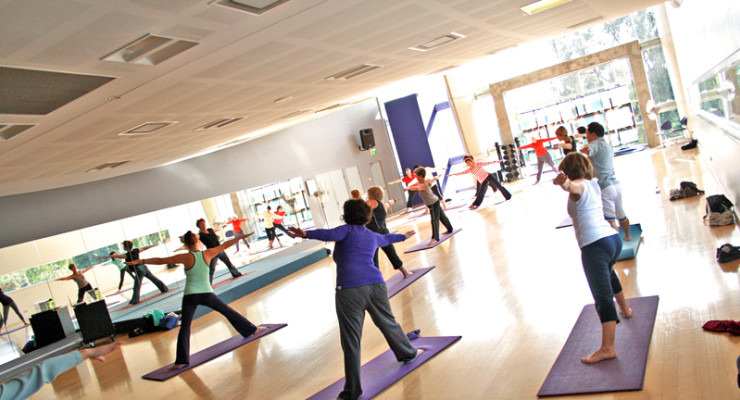Are you Ready to Teach Yoga?
written on Thursday, 31 Aug 2017 by Scott Rennie
written on Thursday, 31 Aug 2017 by Scott Rennie

If you're considering a Yoga teacher training course, you may find the doubts come not too far behind. Are you really ready? Have you done enough? How can you really be sure?
In his Yoga Sutras, Patanjali said that both the teacher and the student must be ready, or there’s no point in continuing, which makes a whole lot of sense. Centuries later, Svāmi Svātmārāma went into more detail in the Hatha Yoga Pradipika, where he listed six qualities that bring success in Yoga. They’re pretty tight, but those qualities can help you to reflect on whether you’re making the right move:
Right Motivation - Without a strong desire to teach you’ll never get started, so your reasons for becoming a Yoga teacher really matter. Is it for the “status” of being called a Yoga teacher? Is it just a career option for you, to make money? If so, you’ll soon be very disappointed, so it’s best to look elsewhere. Teaching Yoga should come from a heartfelt passion to pass on this amazing practice and give other people the same kind of benefit that you’ve received. Is that the way you feel about teaching Yoga?
Courage - Any quality Yoga Teacher Training Course will need your commitment for a year or more of intense study and practice, sacrificing other activities and prioritising the Yoga work you need to do. You’ll be tried and tested, physically and emotionally, and obstacles will rise up from all directions to block your way. And it doesn't stop when the course ends, as teaching Yoga is a lifelong commitment to practice, study and grow. Take a look back at your life and ask yourself how you have dealt with this kind of challenge in the past? Do you stand and meet it head on, or switch and move on to something easier when the going gets tough? Will you treat this training with the respect that the future of the Yoga tradition deserves?
Self-Discrimination— Yoga can be a serious arena at times, with its focus on the causes of suffering, the relentless demands of practice and study, and its viewpoint being at odds with the ways of the modern world. As well as our own life issues, students will bring their problems to our door, directly or indirectly, and expect some sort of help and understanding. A good sense of humour can help, as can enough self-awareness to know when you need your own teacher’s help in sorting things through. Can you laugh in the face of adversity? Do you know how to tell when it’s all too much, and how to ask for help?
Understanding - How well you truly “get” Yoga is far more important than book knowledge or arbitrary concepts such as the number of years you've been practising. This non-intellectual knowing can show up best in the way that you engage with practice. Do you “feel” your Yoga practice in the depths of your body? In the many years I’ve been training Yoga teachers, those who go on to become the best have one thing in common—a strong embodied connection to practice that takes them far beyond simply doing something that they know is good for them. Is that how practice is for you?
Belief - The shiny teacher training course ads probably won't tell you that as a Yoga teacher you are likely to be overworked, underpaid and unappreciated. The world will largely seem uninterested in what you're doing, and the only thing to keep you going at such times is your belief that teaching really makes a difference to the world around you. Is your faith in the power and the worth of Yoga practice strong enough to keep you going?
Committed to Positive Change - The original Sanskrit term here means “capable of moving away from bad company.” It points to the fact that nobody can evolve in a positive direction when too many negative elements are working against them. When walking the path of Yoga we accept that massive change is required in our lives, even down to the choice of who our friends are. Are you truly open to inviting such transformation into your life rather than staying stuck in the comfort-swamp of your old patterns?
I’ll add just one reference point of my own to this wisdom of enlightened masters—intuition. How does it feel in your gut when you think about teaching Yoga? It’s my experience that your body knows what’s right even when your mind is confused, so check in and see what kind of message you're getting from the feeling-tone inside. If you've read this far, I reckon you’ll discover that your body says yes.
Now go and make it happen!